SRP0195
PARP6 Active human
recombinant, expressed in baculovirus infected insect cells, ≥70% (SDS-PAGE)
Sinonimo/i:
MGC131971, Poly (ADP-ribose) Polymerase 6, pART17
Autenticatiper visualizzare i prezzi riservati alla tua organizzazione & contrattuali
About This Item
Codice UNSPSC:
12352200
NACRES:
NA.32
Prodotti consigliati
Origine biologica
human
Ricombinante
expressed in baculovirus infected insect cells
Saggio
≥70% (SDS-PAGE)
Forma fisica
aqueous solution
PM
98 kDa
Confezionamento
pkg of 10 μg
Concentrazione
>0.02 mg/mL
N° accesso NCBI
N° accesso UniProt
Condizioni di spedizione
dry ice
Temperatura di conservazione
−70°C
Informazioni sul gene
human ... PARP6(56965)
Descrizione generale
PARP6 (poly(ADP-ribose) polymerase family member 6) gene is localized to human chromosome 15q23. It is a member of the family of multifunctional nuclear proteases known as PARPs, which contains 17 members and is further classified into three subtypes dependent on the catalytic domain structure. PARP6 is a type of mono(ADP-ribosyl) transferase on the basis that its catalytic domain has a significantly shorter nicotinamide-ribose-binding site than PARP1. This subfamily contains nine members including PARP6. PARP6 is composed of 630 residues and has a molecular weight of 71kDa.
Human PARP6 (GenBank Accession No. NM_020214), full length with N-terminal GST tag, MW = 98kDa, expressed in a Baculovirus infected Sf9 cell expression system.
Human PARP6 (GenBank Accession No. NM_020214), full length with N-terminal GST tag, MW = 98kDa, expressed in a Baculovirus infected Sf9 cell expression system.
Applicazioni
Useful for the study of enzyme kinetics, screening inhibitors, and selectivity profiling.
Azioni biochim/fisiol
PARP6 (poly(ADP-ribose) polymerase family member 6) negatively controls cell cycle, as its ectopic expression in HeLa cells leads to suppression of cell growth. It functions as a tumor suppressor in CRC (colorectal cancer), and its expression is associated with good prognosis. The ectopic expression of PARP6 results in suppressed expression of the oncogene survivin. In CRC PAPR6 prevents colony formation, invasion, migration, and cell proliferation.
Definizione di unità
One unit of PARP incorporates 100 pmoles of poly(ADP) in 1 minute (room temperature) from NAD into acid-insoluble form.
Stato fisico
Formulated in 25 mM Tris-HCl, pH 8.0, 100 mM NaCl, 0.05% Tween-20, 50% glycerol and 3 mM DTT.
Nota sulla preparazione
Thaw on ice. Upon first thaw, briefly spin tube containing enzyme to recover full content of the tube. Aliquot enzyme into single use aliquots. Store remaining undiluted enzyme in aliquots at -70°C. Note: Enzyme is very sensitive to freeze/thaw cycles.
Certificati d'analisi (COA)
Cerca il Certificati d'analisi (COA) digitando il numero di lotto/batch corrispondente. I numeri di lotto o di batch sono stampati sull'etichetta dei prodotti dopo la parola ‘Lotto’ o ‘Batch’.
Possiedi già questo prodotto?
I documenti relativi ai prodotti acquistati recentemente sono disponibili nell’Archivio dei documenti.
Guangying Qi et al.
Oncotarget, 7(14), 18812-18824 (2016-03-05)
Poly (ADP-ribose) polymerases (PARPs) are enzymes that transfer ADP-ribose groups to target proteins and are involved in a variety of biological processes. PARP6 is a novel member, and our previous findings suggest that PARP6 may act as a tumor suppressor
Handan Tuncel et al.
International journal of oncology, 41(6), 2079-2086 (2012-10-09)
Poly(ADP-ribose) polymerase (PARP) is an enzyme that mediates post-translational modification of proteins. Seventeen known members of the PARP superfamily can
Il team dei nostri ricercatori vanta grande esperienza in tutte le aree della ricerca quali Life Science, scienza dei materiali, sintesi chimica, cromatografia, discipline analitiche, ecc..
Contatta l'Assistenza Tecnica.







